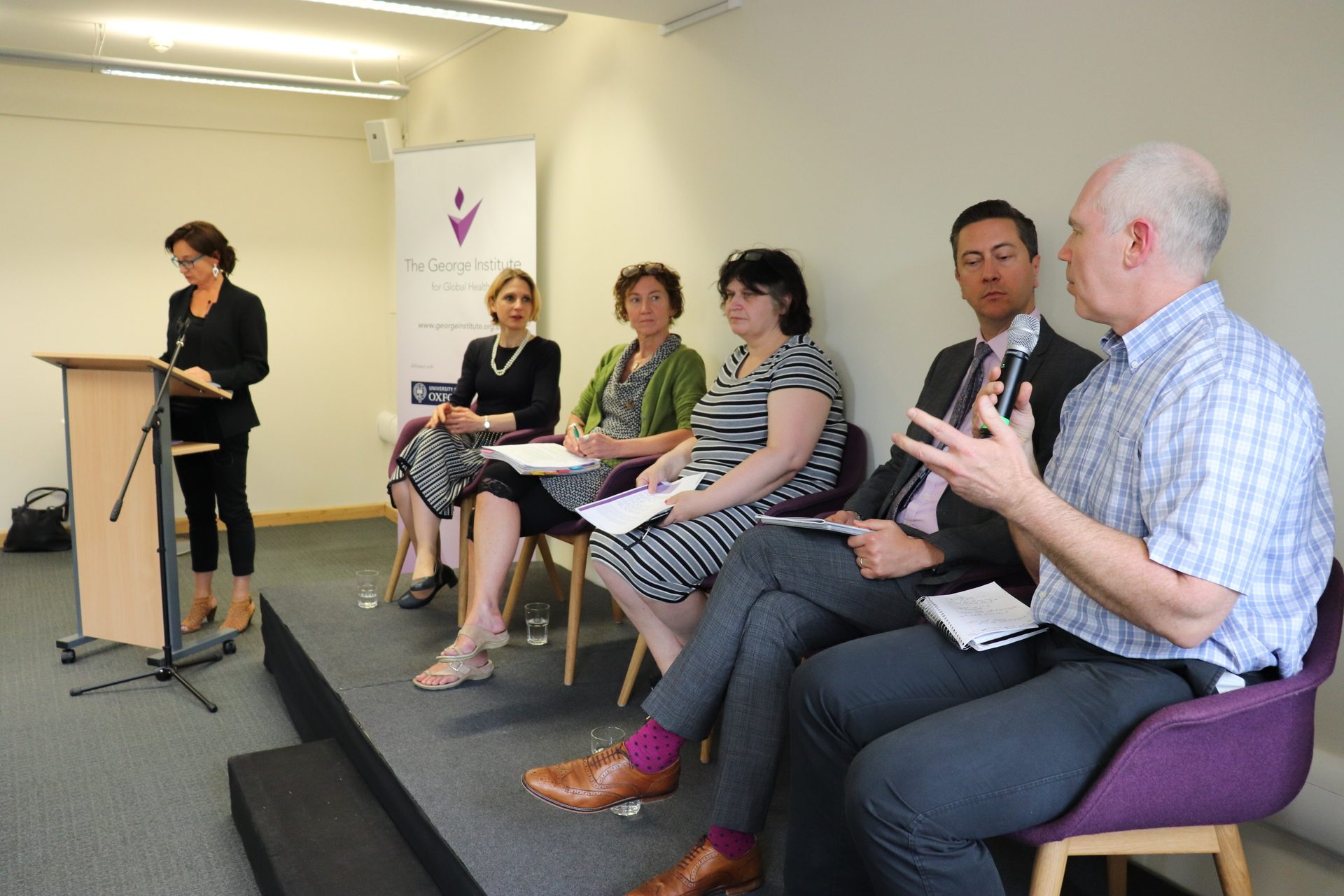
Putting lived experience at the heart of policies to create healthy city food environments
‘How can researchers support city leaders, businesses and advocates to deliver a healthier urban food environment?’. This was the question addressed at The George Institute for Global Health’s latest thought leadership event, ‘Creating healthy, sustainable, city food environments’, which took place at the institute’s Oxford office on 20 June and was attended by over 60 stakeholders from academia, business, local authorities and civil society.
The keynote address was given by Professor Corinna Hawkes, Director of the Centre for Food Policy at City University, London, and Distinguished Fellow at The George Institute for Global Health. With rising levels of obesity placing a significant burden on health systems, Hawkes called for a people-centred approach, stressing that lived experience must be at the heart of urban food policy if it is to enable city inhabitants to access food that is available, acceptable, affordable, and appealing.
Drawing on her experience as Vice-Chair of the London Child Obesity Taskforce, Hawkes described how urban food provisioning – the way people in cities access food – is a significant part of the problem. However, she went on to highlight examples of local authorities around the world that are adopting polices based on the lived experience of their inhabitants, which show promise of sustainable change.
“Those of us who believe that food has the power to do good need to carry on working … so that we infect the system with the belief that change can happen,” said Hawkes.
Associate Professor Jacqui Webster moderated a panel discussion and audience Q&A following Professor Hawkes’ keynote address, with panellists Dr Brian Cook, Health Behaviours Researcher at the University of Oxford; Monica Gregory, an Expert by Experience with Good Food Oxford; Dr Frances Hansford, a consultant with Good Food Oxford; and Jamie Izzard, Senior Manager – Economic Development with the Greater London Authority.
Webster asked the panel to reflect on the keynote address and share their own experiences and suggestions as to how we might best achieve long-lasting change in urban food environments. Cook discussed his research with retail partners to test “nudge” strategies to support people to make healthy and sustainable food purchasing choices, and to reduce the demand for animal-sourced foods. Gregory and Hansford addressed different aspects of the work of Oxford’s Sustainable Food Network, Good Food Oxford, to assess and address food poverty in the city. The network aims to strengthen food systems through cross-sector partnerships.
Izzard noted how small changes can make a big difference when understood in the context of what people actually want to eat. He gave the example of London’s Healthier Catering Commitment, a voluntary scheme promoted by local authorities to help caterers and food businesses make simple, healthy improvements to their food, with a positive impact on the diets of the 20% of adults and children who eat takeaway meals at home one a week or more.
“The event convened representatives from a range of different sectors, all of whom are working towards creating healthier urban food environments, giving us an opportunity to reflect on what has and hasn’t worked so far, and how we might coordinate and strengthen efforts to improve dietary choices and outcomes for people living in cities around the world,” said Webster.
The George Institute’s Thought Leadership programme aims to share insights, challenge the status quo, and foster the kind of debates and discussions that lead to improvements in health outcomes. This event aligns with one of the programme’s themes, ‘Promoting healthy environments’, which explores how to facilitate healthy eating and living areas designed to promote health and avoid injury.
To find out more, please visit our Thought Leadership webpages here and details of our Food Policy work here.
You can watch a recording of the event in full and view photos of the event below:




